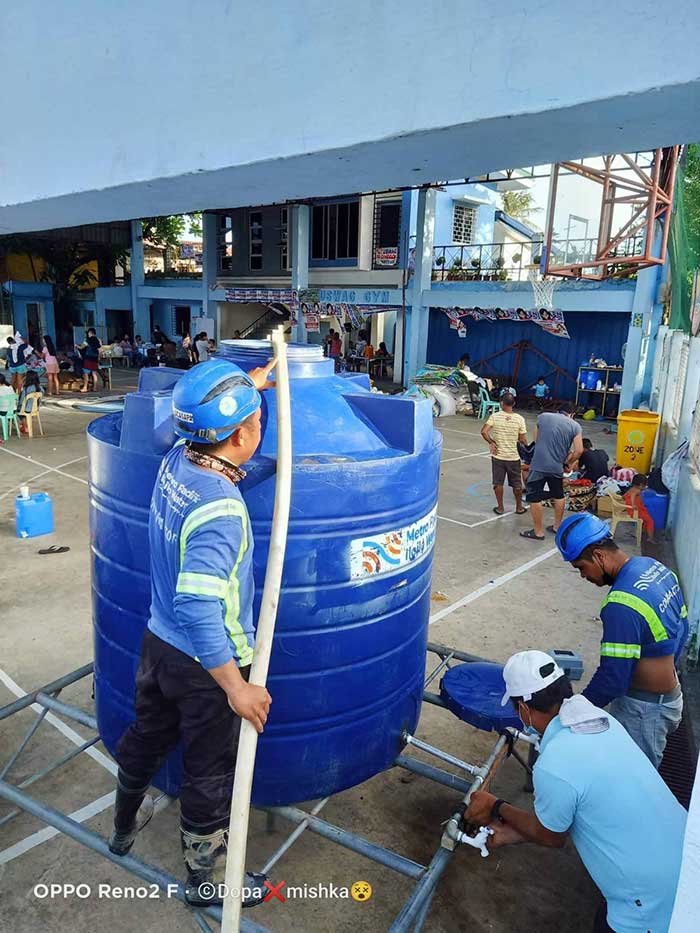
By Joseph B.A. Marzan
The Iloilo City Health Office (CHO) on Thursday said static tanks are ready to be deployed to barangays affected by the acute gastroenteritis (AGE) and cholera outbreaks.
Dr. Roland Jay Fortuna of the CHO said that they are ready to deploy static tanks to 12 barangays, pending reports on water potability and other necessary requirements.
There are also five other static tanks not yet ready for deployment, including in Barrio Obrero and San Juan with pending concerns that Fortuna refused to specify, and in Benedicto, Santo Niño Norte, and Santo Niño Sur that are still subject to ocular inspection.
He added that they are still waiting for additional reports on cases to update their statistical maps on AGE and cholera.
“On our stat maps, we are just waiting for the reports per district including those for static tanks. We are also waiting for reports as to whether or not we are ready to accept delivery of water from Metro Pacific,” said Fortuna in a virtual press conference.
As to water refilling stations, Fortuna said that they have already closed 28 and tested 11 more stations as of Thursday with 9 yielding positive results for coliform.
He advised the public to check the updated monthly water potability test results whenever they buy water from refilling stations or use the services of bathhouse facilities.
“In case people use water [from outside sources], they need to look for the water potability test, especially in water refilling stations. If it is not posted, they can ask those who work there with regard to the testing. If the [water source] cannot show that they passed [the potability test] within a month, we should just avoid them,” he said.
Fortuna added that they have also started inspecting elementary and secondary schools under the Department of Education (DepEd).
The CHO earlier learned that 29 elementary schools and 4 secondary schools have no water connections, while 25 elementary and 11 secondary schools are already connected to Metro Pacific Iloilo Water (MPIW).
Along with the inspection of businesses that use water heavily, the CHO has also been inspecting schools that have deep wells as their main source.
They also met with hotels and restaurants as well as food and beverage providers to apprise them of the situation and to advise them to look out within their own facilities.
CHO chief Annabel Tang likewise advised that homes and places with deep wells should chlorinate their wells between 12 to 16 hours overnight so that these can be used in the morning.
City Epidemiological Surveillance Unit (CESU) chief Marigold Calsas reported 35 new AGE cases in the city as of Sept 7 – 15 in Molo, 7 in Arevalo, and 2 cases each in City Proper, Jaro, La Paz, Lapuz, and Mandurriao.
There were no new cholera cases nor fatalities due to said infections as of Sept 7.
The total number of AGE cases in the city is now 454 (85 active, 358 recoveries, and 10 deaths) and 12 cholera cases.
Calsas said that there has been no new information as to the source of the AGE and cholera infections, but they have been discovering a commonality between cases, which she says they are set to have a deeper investigation on.
She cited one Iloilo City case which was connected to a case in Pavia, due to the travel history to the residence of the latter case.






















